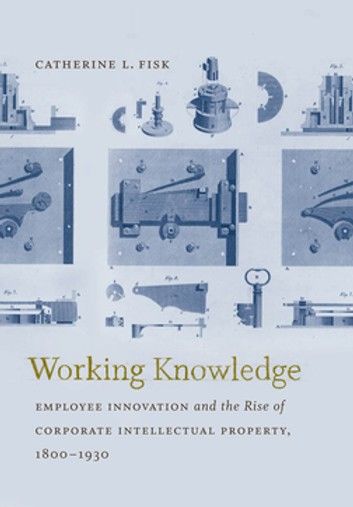| FindBook |
有 1 項符合
Working Knowledge的圖書 |
 |
Working Knowledge 作者:Catherine L. Fisk 出版社:The University of North Carolina Press 出版日期:2009-11-01 語言:英文 |
| 圖書館借閱 |
| 國家圖書館 | 全國圖書書目資訊網 | 國立公共資訊圖書館 | 電子書服務平台 | MetaCat 跨館整合查詢 |
| 臺北市立圖書館 | 新北市立圖書館 | 基隆市公共圖書館 | 桃園市立圖書館 | 新竹縣公共圖書館 |
| 苗栗縣立圖書館 | 臺中市立圖書館 | 彰化縣公共圖書館 | 南投縣文化局 | 雲林縣公共圖書館 |
| 嘉義縣圖書館 | 臺南市立圖書館 | 高雄市立圖書館 | 屏東縣公共圖書館 | 宜蘭縣公共圖書館 |
| 花蓮縣文化局 | 臺東縣文化處 |
|
|
Skilled workers of the early nineteenth century enjoyed a degree of professional independence because workplace knowledge and technical skill were their "property," or at least their attribute. In most sectors of today's economy, however, it is a foundational and widely accepted truth that businesses retain legal ownership of employee-generated intellectual property.
In Working Knowledge, Catherine Fisk chronicles the legal and social transformations that led to the transfer of ownership of employee innovation from labor to management. This deeply contested development was won at the expense of workers' entrepreneurial independence and ultimately, Fisk argues, economic democracy.
By reviewing judicial decisions and legal scholarship on all aspects of employee-generated intellectual property and combing the archives of major nineteenth-century intellectual property-producing companies--including DuPont, Rand McNally, and the American Tobacco Company--Fisk makes a highly technical area of law accessible to general readers while also addressing scholarly deficiencies in the histories of labor, intellectual property, and the business of technology.
|









